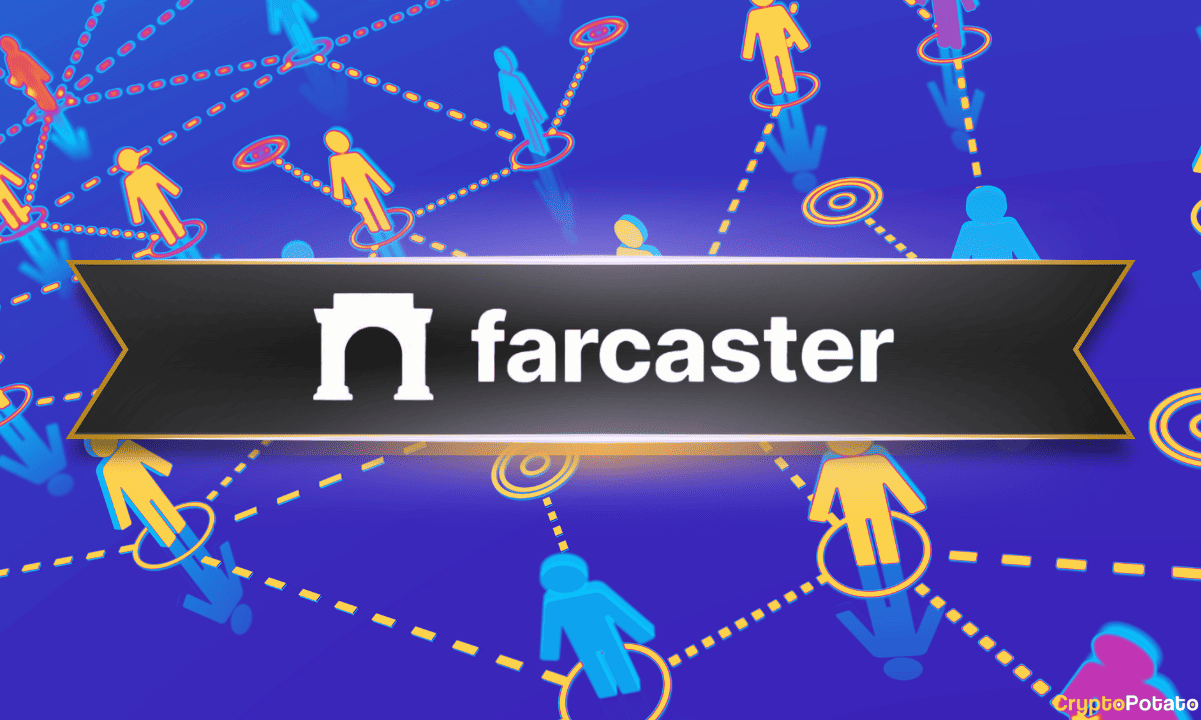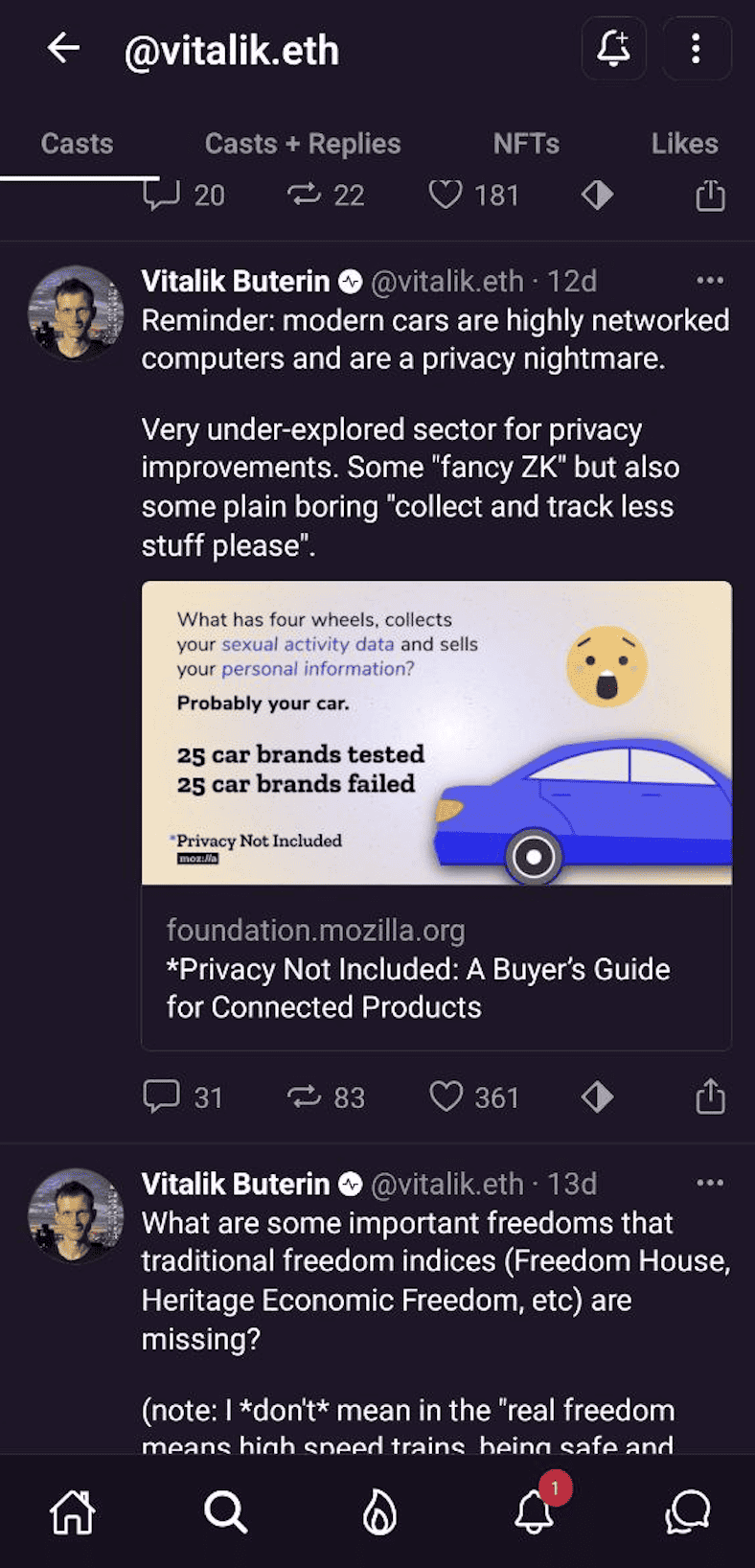The cryptocurrency industry is in a state of constant development and improvement, with various protocols emerging to take the spotlight regularly.
That said, Farcaster is a. hot topic amongst crypto enthusiasts.
In the first quarter of 2024, the protocol has seen an influx of new users as applications built on it are skyrocketing in popularity.
The following guide takes a closer look at what Farcaster is and some of the more popular applications built on top of it. We also look at how to register at Warpcast – the decentralized version of X.
What is Farcaster?
First things first, Farcaster is a protocol for developing decentralized social network applications built on Optimism.
Optimism (OP) is a layer-two scaling solution of Ethereum. We have a dedicated guide on the topic that you can find here:
What is Optimism (OP): Guide to One of Ethereum’s Layer-Two Scaling Solutions
In essence, the Farcaster protocol is completely open-source, allowing everyone to build applications. The goal, as with everything that’s decentralized, is to ensure an environment where there’s no censorship, and users have full control of their audience, interactions, and information.
Interestingly enough, Farcaster was co-founded back in 2020 by no other than Dan Romero and Varun Srinivasan. Both of them worked at the largest US-based cryptocurrency exchange – Coinbase – prior to starting the project. In January of 2023, the project received a seed round investment, the amount of which remained undisclosed.
Important Elements of Farcaster: How Does it Work?
First things first, Farcaster uses hybrid architecture to ensure that information regarding user identity is stored on-chain, while data on interactions and posts is stored off-chain.
The system itself is secured through smart contracts, which, as expected, run on the Optimism network.
Without getting into technicalities too much, users can think of it as a Twitter alternative that runs on a blockchain and users retain control over their data.
The most popular application that’s built on Farcaster and the one that the official website refers to directly is called Warpcast – it’s a Farcaster client for iOS and Android users. There’s no support for macOS or Windows.
Let’s take a look at what Warpcast is like.
How to Use Warpcast
As mentioned above, Warpcast is the most popular client on Farcaster and it’s only available for iOS and Android. Using it on your Mac is also unlikely to work as there’s no support yet. In other words – desktop is out of the question – at least not natively.
Registering with your phone, however, is quite straightforward, although you do have to save a seed phrase and keep it safe – it will allow you to recover your account or to import it on another device. It’s also the key to your account – keep your seed phrase safe = keep your account safe.
One thing that’s very important to note is that Warpcast is not free to use. The team has decided that charging a fee is necessary, perhaps to prevent bots. There’s a $5 fee that you have to pay annually.
Sending messages (casts) is also not free. The app uses a storage system where users have to pay certain fees.
The explanation for this is:
Storage fees are charged by Farcaster to help reduce spam on the network.
Upon signing, you get one unit of storage, which is enough for:
- 5,000 casts (posts)
- 2,500 reactions
- 2,500 follows
This is for one year. If you surpass these numbers without buying an additional storage unit, the app will start deleting from the oldest entries.
One unit costs $0.75 per month, while two units cost $1 per month. The cool thing is that there’s a lot of on-chain activity but the end-user doesn’t really get into it at all – Farcaster handles it at the back-end.
This is what the feed looks like:
It’s pretty similar to that of X. And yes, Vitalik Buterin is on Warpcast – so are a lot of other popular crypto personas.
All in all, the experience does feel quite a bit similar to that of Twitter (X), which is perhaps what the team was going for. The features look comparable, but then again – Warpcast adds all the on-chain capabilities.
Users are able to connect an address to verify ownership of certain assets like non-fungible tokens (NFTs) and all that.
It’s interesting to see if the interest in Farcaster will persist, given the massive increase of daily active users in the beginning of February 2024.
The post What is Farcaster? Everything You Need to Know appeared first on CryptoPotato.






















